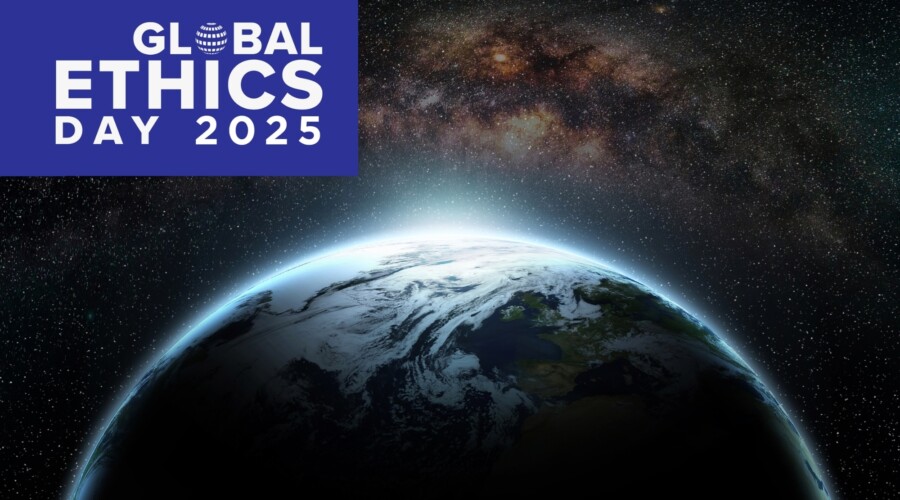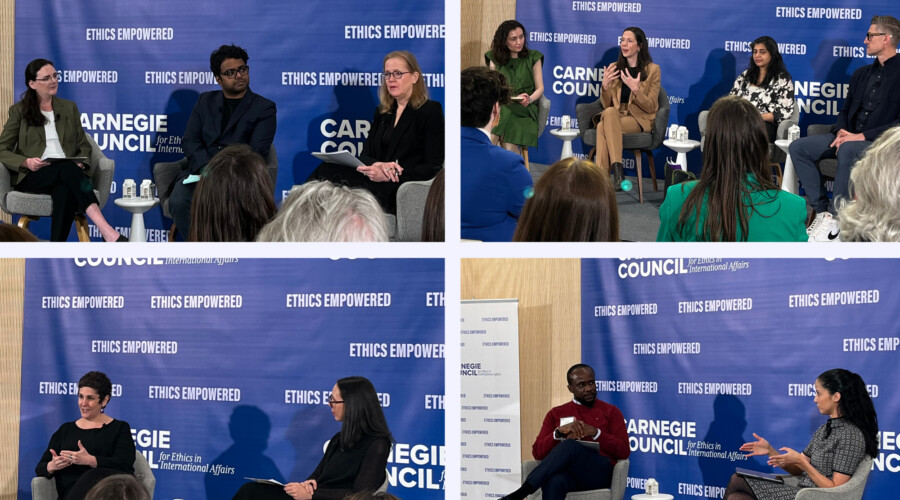May 13, 2008
Contact: Madeleine Lynn Carnegie Council for Ethics in International Affairs (212) 838-4120 ext. 222, email: [email protected]
"Justice, Culture and Tradition" Conference, June 2-4, 2008 Institute for Advanced Study, Princeton, New Jersey
New York, NY---Michael Walzer, Professor Emeritus in the School of Social Science at the Institute for Advanced Study (http://www.ias.edu/), has written extensively on a variety of topics in political theory and moral philosophy. His most acclaimed work to date, "Just and Unjust Wars" (1977), is the classic contemporary text on the morality of war.
To recognize Walzer's contributions to the ethical and political philosophy of the twentieth century, a conference titled "Justice, Culture and Tradition" will take place June 2-4, 2008 at the Institute for Advanced Study (IAS).
The academic committee of the conference includes Yitzhak Benbaji (Bar-Ilan University, Shalom Hartman Institute), Amy Gutmann (the University of Pennsylvania) and Avishai Margalit (IAS).
The Conference will consider the following questions:
How should liberalism treat cultures, cultural diversity and cultural identities?
How should the just society distribute resources and the goods social life produces?
When is waging war justified? What is the meaning of national self-defense and how is it related to self-defense in the domestic realm?
Is an international system constituted from fully sovereign states justified, or should the international society be federalized?
Conference speakers include: Charles R. Beitz, Yitzhak Benbaji, Pierre Birnbaum, Mitchell Cohen, Michael Doyle, Ruth Gavison, Amy Gutmann, Moshe Halbertal, Axel Honneth, George Kateb, Will Kymlicka, Jacob T. Levy, Menachem Lorberbaum, Avishai Margalit, Jeff McMahan, Susan Neiman, David Novak, Brian Orend, Martin Peretz, Nancy L. Rosenblum, Michael J. Sandel, Thomas Scanlon, Haim Shapira, Charles Taylor, Georgia Warnke, Leon Wieseltier and Noam J. Zohar.
Michael Walzer will attend and comment on the papers presented.
For more information, conference agenda, and to register your attendance, please go to the Carnegie Council website, http://www.carnegiecouncil.org
All sessions are free and open to the public, and seating is on a first come, first served basis.
Organized by Professor Yitzhak Benbaji of Bar-Ilan University and Shalom Hartman Institute, this conference was made possible by the generous support of the following: Fritz Thyssen Stiftung; Carnegie Council for Ethics in International Affairs; Institute for Advanced Study; Shalom Hartman Institute; YIVO Institute for Jewish Research; Bar-Ilan University, Faculty of Law; and the Heinrich Boell Foundation.
The Carnegie Council for Ethics in International Affairs (www.carnegiecouncil.org), established in 1914 by Andrew Carnegie, is an independent, nonpartisan, nonprofit organization dedicated to increasing understanding of the relationship between ethics and international affairs. The Carnegie Council's mission is to be the voice for ethics in international policy. It convenes agenda-setting forums and creates educational opportunities and information resources for a worldwide audience of teachers and students, journalists, international affairs professionals, and concerned citizens.


